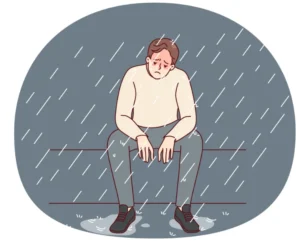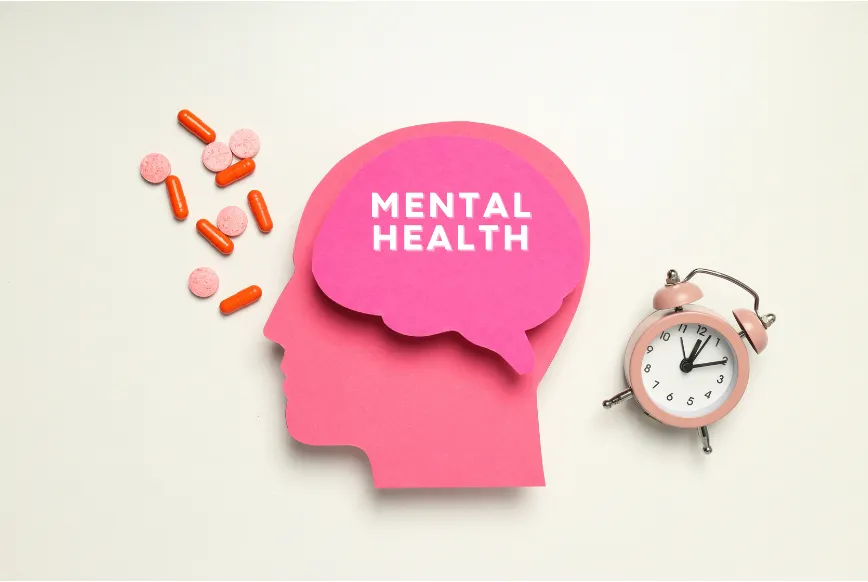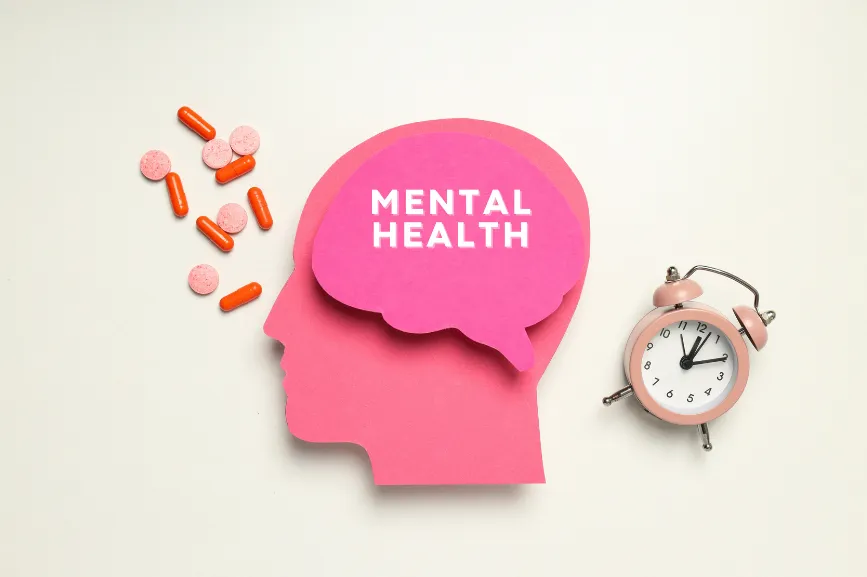Prolonged Grief Disorder Is Controversial, But Election Grief May Be Real
January 22, 2025

The November 5th U.S. presidential election had already occurred when we got around to reading the excellent review of the controversial diagnosis Prolonged Grief Disorder that appeared in the October 2 issue of the New England Journal of Medicine. Authored by psychiatrists Naomi M. Simon of New York University and M. Katherine Shear of Columbia University, the review noted that formal diagnostic criteria were added to the official diagnostic manual of the American Psychiatric Association (called the DSM-5) in 2022 and are applied to people who exhibit severe symptoms of grief that cause distress and impair functioning at least 12 months after bereavement. “Patients with prolonged grief disorder may present with severe loss-related emotional pain and difficulty envisioning a meaningful future without the deceased person,” Simon and Shear explain.
Those symptoms seem to be prevalent today among health professionals. Right now, U.S. Americans appear almost evenly divided on how they feel following the re-election of Donald Trump as president. Some are elated; others are experiencing grief and disbelief. We wonder how long that grief will last and if in a sense it will, for some, warrant something akin to a diagnosis of prolonged grief disorder.
So the question becomes, can something like prolonged grief disorder occur after losses that involve something different than the death of a loved one? After losing an election? A job? A lot of money?
This diagnosis is controversial because some experts insist that even prolonged grief represents normal human experience. It is, of course, entirely normal to feel sadness and yearning after the death of a loved one, but for some people those emotions persist for more than a year and interfere with attempts to resume usual activities. Such individuals can experience disbelief about the death, severe emotional pain, emotional numbness, intense loneliness, and a feeling that life is meaningless. Cognitive behavioral psychotherapy (CBT) has been shown in multiple randomized clinical trials to be an effective treatment for prolonged grief disorder. Some people with prolonged grief disorder may also benefit from antidepressant medication.
Is Prolonged Grief Disorder a Real Diagnosis?
Still, there is an ongoing debate about prolonged grief disorder. In a letter to the journal Lancet Psychiatry, Joanne Cacciatore of Arizona State University and Allen Frances of Duke University wrote in 2022 that the diagnosis of prolonged grief disorder “is a huge mistake that solves no existing problem and creates many new ones.” They went on to insist that “Pathologising [sic] grief is an insult to the dignity of loving relationships—it proclaims grievers as mentally ill and will too often result in the careless prescription of antidepressants or other drugs to treat enduring symptoms, without consideration of the context.”
Of course nothing in the diagnostic nomenclature for prolonged grief disorder mentions reactions to an election. Prolonged grief disorder only applies to the case of the death of a loved one. Yet we cannot help wondering about grief reactions following the election. So many scientists, public health officials, and healthcare providers are deeply concerned that the election results portend difficult times ahead for their interests and convictions. There is broad consensus among them that the currently approved vaccines are safe and effective and require mandated administration to ensure community immunity; that fluoridation of public drinking water is a safe and effective method for reducing dental decay; that unpasteurized milk poses unnecessary risks; and that health insurance should be extended to all residents of the country. Now, those values are threatened and thus for many the election has caused a wave of grief. Some are protesting, but others seem to be exhibiting emotional numbness, refusing to even discuss what has happened and may yet occur as the new administration takes control of the country. In a year, will this grief resemble prolonged grief disorder? Will some in the scientific, public health, and healthcare professions require expert interventions to recover?
Psychiatric Diagnosis Often Provokes Controversy
In the absence of objective measures like the results of blood tests and brain imaging, psychiatric diagnoses will always have a subjective aspect. As new diagnoses are added to the professionally recognized manual, controversies arise over whether the field is appropriately identifying illnesses that provoke suffering and require treatment or is pathologizing normal human reactions and behaviors. Everyone agrees that grief following a profound loss is a normal human emotion that under most circumstances does not warrant intervention with psychotherapy or psychoactive medications. There is also recognition that for some the response to a significant loss continues indefinitely and disrupts life. For those unfortunate individuals, some form of professional help may be imperative. Only time will tell whether the inclusion of a formal diagnosis called prolonged grief disorder results in people with a serious emotional condition receiving the help they need, or if it results in people dealing with an expected response to loss being mislabeled as psychiatrically ill and receiving unnecessary treatment.
Our speculation that grief following an election might someday resemble prolonged grief disorder may seem fanciful in this context. Nevertheless, we raise the concern because it is crucial that experts in the health professions overcome their grief and continue to work toward preserving and protecting the public’s health. Right now, many in the health field are experiencing what Simon and Shear note as cardinal signs of prolonged grief disorder, severe emotional pain and difficulty imagining a meaningful future. We need to use all available means to make clear that things like vaccines, fluoride, pasteurization, and health insurance are not optional if we are going to prevent unnecessary disease, suffering, and death. We cannot become mired in grief; we need to press on.
Related Posts

What Are the Predominant Myths About SSRIs?: An examination and debunking
Posted in Depression
SSRIs have been in the news lately but not always with accurate information. Here we debunk some of the most common myths.

A 20-Year-Old Black Box Warning Sparks Renewed Controversy
Posted in Depression
20 years ago, concerns about antidepressants and suicidality triggered a black box warning. It's time to reconsider.